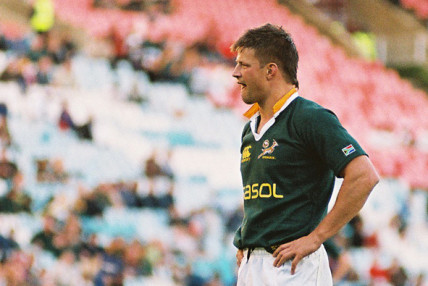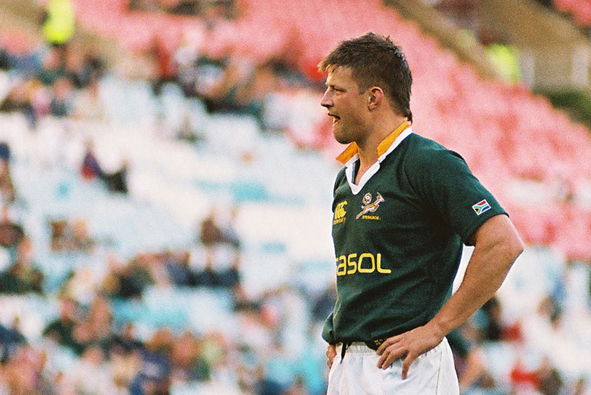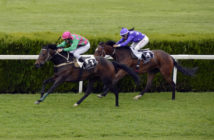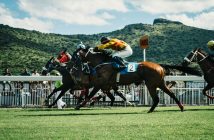
Photograph by Michel Béga
Sometimes sport really does make a difference in society. At least Nelson Mandela thought so.
Though the movie Invictus plays with and stretches the reality of what happened in South Africa during the 1995 Rugby World Cup, it clearly demonstrates for the global audience what Nelson Mandela knew all along – to reach the white Afrikaners, especially white Afrikaner males, you had to reassure them that their way of life was not under threat.
Significantly, Mandela recognised that rugby was a key element of the white South African identity and way of life. He famously stated that to achieve victory over the Afrikaner he had to know what they knew; he had to understand what “made them tick”.
Rugby has a deep historical significance in South Africa, dating back to the early 1900s. For most of the last century the country’s iconic national team, the “Springboks”, were the best, or equal best in the world.
But more than any other sport in the country, rugby and its iconic bok was associated with segregation. The end of apartheid saw pressure to abandon the emblem for the more neutral “protea”, South Africa’s national flower.
Mandela however understood that it would be sheer folly to eliminate the Springbok emblem from the sport. In surveys of white South Africans in the early 1990s, about half stated losing the flag or changing the national anthem was something they could live with, but over 90% stated eliminating the Springbok emblem was unthinkable.
Rather than get rid of the Springbok, Mandela decided black South African should claim it as a national symbol for all citizens. So athletics, tennis, and even cricket all acquired new emblems, but not the Springboks.
Dramatic victory
Mandela’s support for rugby World Cup was a vital moment, coming in the year after he was elected. We have to remember that the South Africa’s team was one of the least representative entities in the country at the time. Only the mixed-race (or “coloured” by South African terminology) Chester Williams represented the 87% of the population who were not white.
But Mandela and other leaders understood that sport could be at the vanguard of reconciliation and of South Africa’s return to the international community. And so they threw themselves into it. His support was not a blank check; 40% of World Cup profits were secured for development of rugby facilities and coaching in disadvantaged areas.
The Springboks won the Cup in dramatic fashion, with an extra time victory over arch-rival New Zealand. This was the icing on the cake and something no one, not even Mandela, could have predicted.
Mandela knew a moment not to be missed when he saw one. He donned the jersey of Springbok captain Francois Pienaar and walked onto the pitch to greet the team before and after the match, securing their position as representatives of all of South Africans, not just the white minority.
For South Africa, the long-term impact of the world cup is debatable. Today, the team is still predominately white, but it is no longer exclusionary. Black players are becoming more and more a part of elite rugby.
Taken seriously
More recently, Mandela was instrumental in Cape Town being taken seriously as a candidate for the 2004 Olympics and in South Africa winning the right to host the 2010 football World Cup.
Whether hosting mega-events has a long-term positive effect on the country remains to be seen. However, these tournaments reminded the world that Africa, and especially South Africa, is more than jungle and is not a place where everyone sits around and waits for Aid agencies to come in and hand out food. There are cities, infrastructure, industries and a vibrant if vastly uneven economy.
And what is undeniable is that Mandela, a sportsman himself, knew that sport was the best way for him to connect with those groups in society that he, personally, would have otherwise found hard to reach. He took a political risk knowing that many of his supporters saw the Springbok emblem and a symbol of oppression. Only through his sheer determination could he have succeeded in his strategy of reconciliation. Many a lesser man would have failed.
Much remains to be done to create genuine and sustainable equity in sports and in wider South African society. That Mandela knew it was a long run, as well as a long walk, to freedom will remain as one of his enduring legacies.
By John Nauright, University of Brighton
John Nauright does not work for, consult to, own shares in or receive funding from any company or organisation that would benefit from this article, and has no relevant affiliations.
![]()




